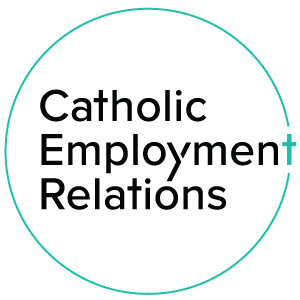CER update - Understand your obligations in relation to flexible working
Upcoming changes to flexible working arrangements and extensions to unpaid parental leave
With the ever-evolving nature of the workplace and the increasing demand for work-life balance, the Federal Government has introduced amendments to the Fair Work Act that affect requests for flexible working arrangements and requests to extend unpaid parental leave. From 6 June 2023, the category of employees who have the right to request flexible working arrangements will be expanded. Employers must also be aware of new obligations to consider requests for flexible work arrangements or to extend unpaid parental leave and consult with employees, as well as a new option for employees to take disputes over such requests to the Fair Work Commission. In this blog, we will explore the new requirements and obligations and provide guidance for employers to implement these changes effectively.
The Fair Work Act already contains the right for employees who:
have parental or carer responsibilities
have a disability
are 55 years or older
who are experiencing or are providing care and support to a member of their immediate family or household who is experiencing, violence from their family
The Fair Work Act also entitles an employee to request to extend unpaid parental leave beyond 12 months to up to 24 months.
From 6 June 2023, the category of employees who have a right to request flexible working arrangements will include employees who are pregnant, and employees who are experiencing, or are providing care and support to a member of their immediate family or household who is experiencing, family and domestic violence (as opposed to violence from their family).
In addition, although an employer will retain the right to refuse both types of requests (flexible work arrangements or extending unpaid parental leave) on reasonable business grounds, the amendments impose additional considerations and procedures in deciding and responding to such requests, together with providing employees with the option to apply to the Fair Work Commission to deal with, and potentially make orders about, disputes relating to either form of request.
What are the new requirements and obligations that an employer has to be aware of?
The Amendments require an employer who receives a request to:
meet with an employee to discuss their request; and
where the employer intends to refuse the request, agree upon alternative changes and note the agreed changes in the employer's written response; or
if the employer still intends to refuse the request, outline the employer's reasonable business grounds for refusal and address the following:
changes that would accommodate (to any extent) the employee's circumstances and that the employer would be willing to make; or
that there are no such changes the employer could make to accommodate the employee's circumstances.
What are the new procedures to resolve disputes where requests for either flexible working arrangements or an extension of unpaid parental leave is refused?
The Amendments introduce a dispute resolution mechanism in circumstances where the employer and employee have not been able to resolve a dispute because an employer has:
refused a request
not provided a written response to a request within 21 days or at all
not responded adequately to a request.
Where a request dispute arises, conciliation is the first step of dispute resolution (unless there are exceptional circumstances).
Where conciliation is unsuccessful, or “if urgency is required”, the Fair Work Commission can "deal with a dispute as it considers appropriate" or through mandatory arbitration and make a limited number of decisions binding on employer and employee, including:
where the employer has not responded to a request as required, an order that an employer has refused a request
where the employer has refused a request, whether such a refusal was or was not on reasonable business grounds
an order that the employer deal with the request as required under the Fair Work Act
an order that the employer grant the request
an order the employer make changes in the employees’ working arrangements to accommodate the employee’s circumstances related to the request.
What should employers do right now?
These new obligations and requirements come into effect on 6 June 2023.
Employers should review their current practices for considering and responding to requests now, including updating or implementing policies or procedures on flexible working arrangements and unpaid parental leave, to ensure they are consistent with these changes. In particular, employers should:
review, develop and establish procedures for considering and responding to requests, before 6 June 2023
consider what limitations exist in relation to their ability to offer flexible working arrangements or extensions of parental leave (taking into account the nature of the business) and how these limitations can be substantiated
review their employment contracts and job descriptions to ensure they contain details about the nature of the employment and the essential requirements of the job, so that employees have a good understanding of what kinds of flexibility are feasible, and what kinds of requests will reasonably be refused.
Listen to the CER matters podcast episode that covers this topic. For any enquiries in relation to this topic, please contact us: Contact us — Catholic Employment Relations

